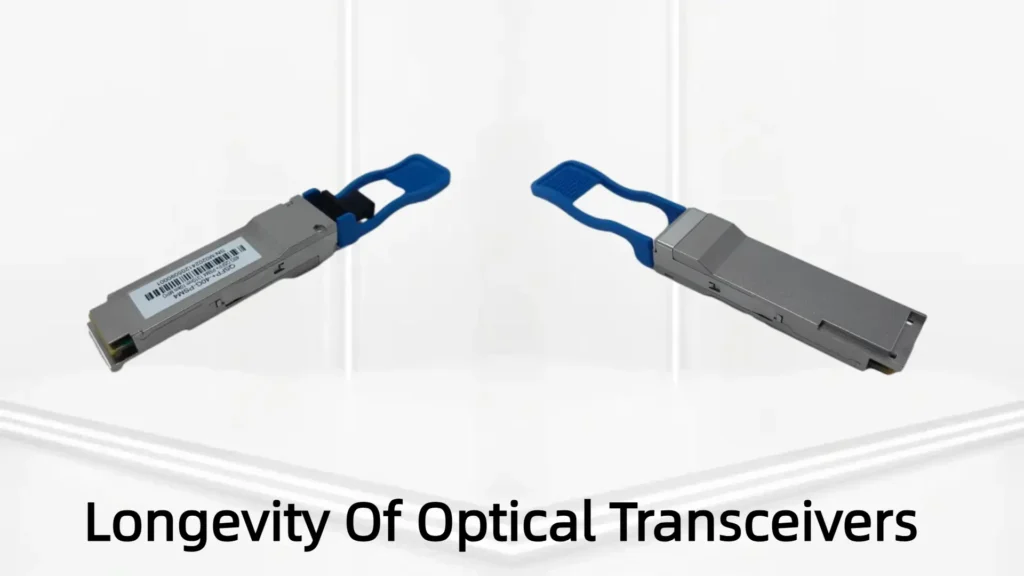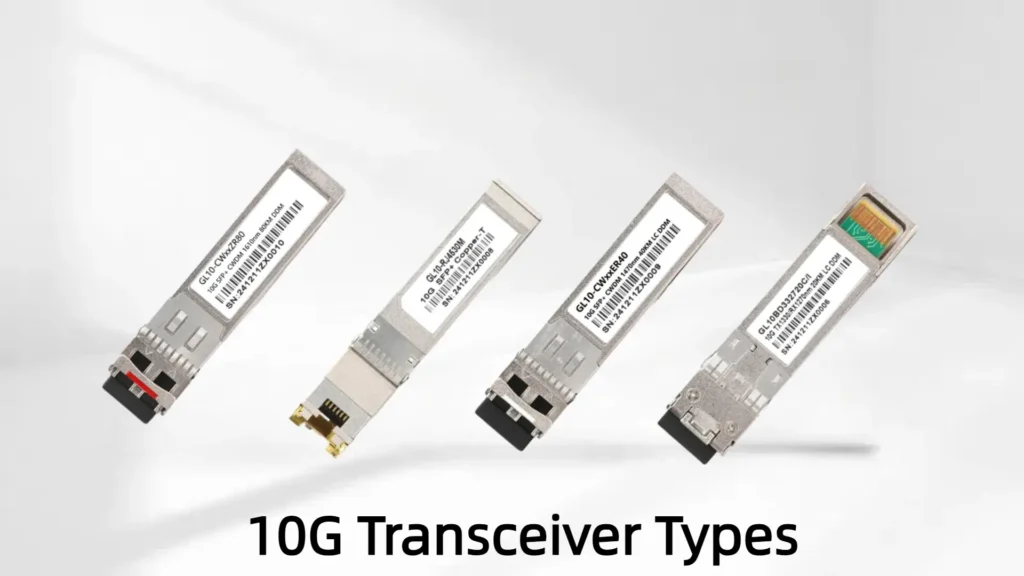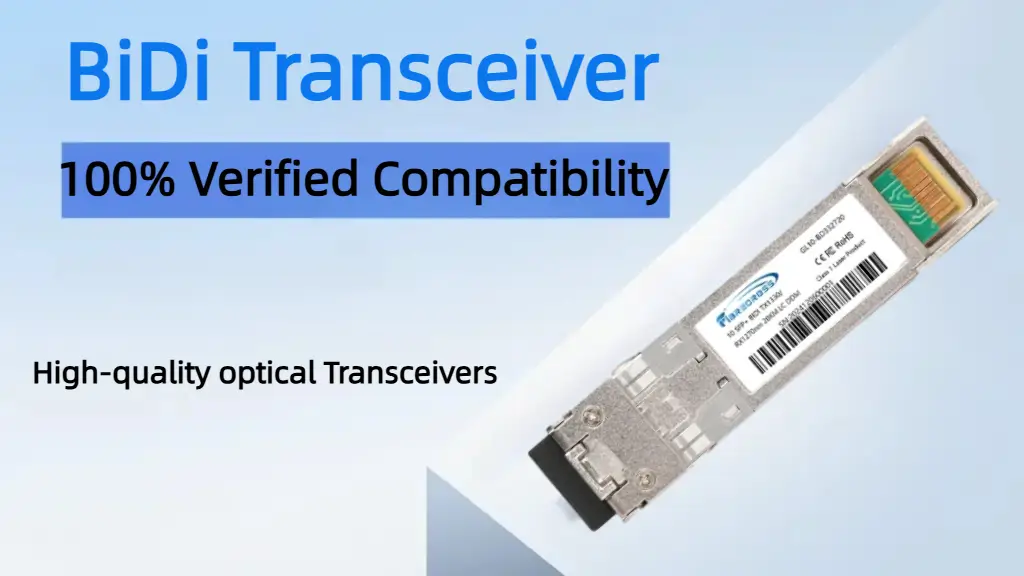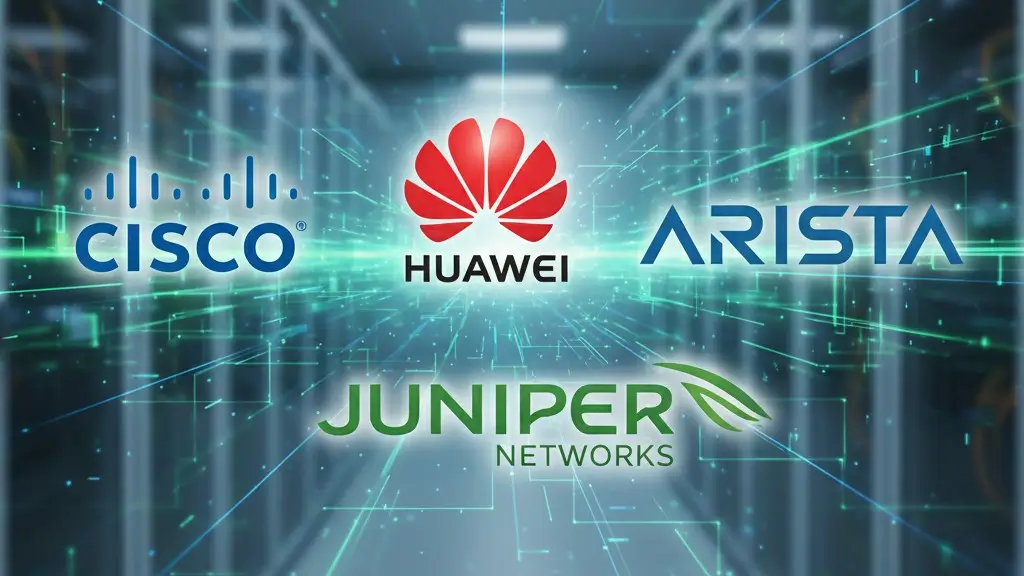What makes an affordable 10G SFP+ optical transceiver a good choice for small businesses?

In today’s digitally connected world, small businesses increasingly rely on high-performance networks to support cloud services, video conferencing, data backup, and real-time collaboration. As demand grows, so does the need for faster, more reliable infrastructure. Enter the affordable 10G SFP+ optical transceiver—a powerful yet cost-effective solution to upgrade your business network to 10 Gigabit Ethernet speeds.
This blog explores what 10G SFP+ modules are, why they matter, and how small businesses can benefit from them across various use cases including office LAN upgrades, data center connections, and surveillance systems.
What Is a 10G SFP+ Optical Transceiver?
A 10G SFP+ optical transceiver is a compact, hot-pluggable module used to connect network switches, routers, and servers over fiber optic cables at 10 Gbps data rates. SFP+ stands for Small Form-factor Pluggable Plus, and it’s the industry standard for 10G Ethernet connections.
Each SFP+ transceiver contains both a transmitter and receiver. When installed at both ends of a fiber cable, it enables a high-speed, full-duplex link—ideal for reducing bottlenecks in growing networks.
Why Upgrade to 10G Networking?
Upgrading from 1G to 10G networking isn’t just about speed—it’s about preparing for modern digital demands. Here’s why it makes sense:
🔹 High Bandwidth
10G links offer ten times the bandwidth of standard 1G Ethernet, enabling large file transfers, faster backups, and smooth access to cloud platforms.
🔹 Low Latency
Reduced congestion and faster data transmission enhance application performance—especially for VoIP, video conferencing, and real-time services.
🔹 Scalability
A 10G core network can support more devices and data-intensive operations. It’s a future-proof solution for expanding businesses.
🔹 Reliability
Fiber-based SFP+ links are less prone to electromagnetic interference and offer longer distance connectivity with higher stability.
🔹 Return on Investment (ROI)
Affordable 10G SFP+ optical transceivers offer enterprise-level performance without excessive costs—delivering faster workflows and better productivity.
Real-World Use Cases for Small Businesses
Let’s look at how businesses are applying 10G optical transceivers in practical scenarios:
1. Office LAN Upgrades
Connecting the core switch to servers or storage with 10G optics reduces file access delays and boosts employee productivity. As more applications move to the cloud and video meetings become routine, a 10G backbone ensures your LAN can keep up.
2. Data Center Connectivity
In small data centers or on-premise server rooms, 10G SFP+ links between switches, servers, and storage arrays help eliminate network bottlenecks. They are especially useful for virtualization, backup, and high-speed replication tasks.
3. Surveillance and Security Systems
With high-resolution IP cameras, bandwidth demand increases sharply. A 10G uplink from camera switches to the recording server ensures smooth, real-time video streaming and centralized storage without packet loss or dropped frames.
Cost Efficiency: Why “Affordable” Doesn’t Mean Compromising Quality
In the past, 10G networking was considered expensive due to high OEM hardware costs. Fortunately, that has changed:
Third-party SFP+ modules now meet the same industry standards (MSA compliance) as branded models, often at a fraction of the cost.
Brands like Fibercross provide high-quality, cost-effective optics that are compatible with major switch vendors.
For short distances (up to 7m), DAC cables (Direct Attach Copper) combine the transceiver and cable into one low-cost unit—ideal for server-to-switch connections.
💡 Pro Tip:
Avoid overpaying for long-range (LR) modules if you only need short-range (SR) options. Matching module type to your environment can reduce costs without sacrificing performance.
Performance and Future-Proofing Benefits
Upgrading to 10G doesn’t just solve today’s problems—it prepares you for tomorrow’s needs.
✅ Boosted Productivity
With 10G infrastructure, staff can work faster, transfer files without lag, and enjoy a seamless experience with cloud tools and collaboration platforms.
✅ Supports Next-Gen Tech
A 10G backbone is well-suited for Wi-Fi 6/7, IoT devices, 4K video streaming, and future data analytics platforms.
✅ Smooth Upgrades
SFP+ ports are forward-compatible with higher-speed modules (25G, 40G, or 100G in some cases), allowing for gradual and cost-effective scaling.
How to Choose the Right 10G SFP+ Transceiver
Here’s a quick checklist when selecting an SFP+ optical transceiver:
| Factor | Consideration |
|---|---|
| Distance & Cable Type | Use SR (short-range) for up to 300m on OM3/OM4 multimode fiber. Use LR (long-range) for distances up to 10km on single-mode fiber. |
| Compatibility | Ensure the transceiver is MSA-compliant and compatible with your switch or router brand (Cisco, Juniper, etc.). |
| Use Case | For server-to-switch in a rack, consider passive DACs for low cost. For inter-building links, choose LR modules. |
| Environment | Consider power consumption and heat dissipation. Most modules consume 0.5W–1W, which is manageable in typical setups. |
| Budget | Look for vendors offering warranty-backed, budget-friendly options with performance guarantees. |
Making the Most of Your Investment
With smart planning, even small businesses can enjoy the benefits of 10G networking. Start with:
Targeted Upgrades: Add 10G where it matters most—between your core switch, file servers, and key applications.
Mix-and-Match Approach: Use SR optics and DACs where possible; reserve LR optics for long-distance uplinks.
Trusted Vendors: Choose certified third-party vendors for cost-effective, compatible modules.
By building a scalable, high-speed network, you’re not just solving today’s challenges—you’re creating a platform that grows with your business.
Conclusion
Choosing an affordable 10G SFP+ optical transceiver is a practical, forward-thinking investment for any small business looking to modernize its network. With the right mix of compatibility, performance, and price, SFP+ optical transceivers unlock faster speeds, higher efficiency, and scalable growth potential. Whether you’re upgrading a local office network, building a small data center, or supporting high-bandwidth surveillance systems, 10G optics deliver the speed and reliability modern operations demand.
With reliable suppliers like Fibercross and other reputable vendors offering MSA-compliant, budget-friendly modules, achieving enterprise-grade networking is now within reach—even for growing businesses.

What Is the Lifespan of an Optical Transceiver?
Learn the typical lifespan of optical transceiver modules like SFP+, QSFP+, QSFP28, QSFP-DD, OSFP. Discover factors that affect durability, signs of failure.

10G Transceivers: Types, Distances & Buying Guide
Learn the real-world differences between 10G transceiver types (SFP+ SR/LR/ER/ZR, copper/DAC/10GBASE-T), distances, use cases and buying tips.

What Is a BiDi Transceiver?
Discover what a BiDi transceiver is, how BiDi optical transceivers work, and why 800G BiDi is shaping the future of data center networking.

OEM vs. Third-Party Optical Transceivers: Which to Choose?
Make an informed choice between OEM and compatible optical transceivers. Practical guidance for IT managers on reliability, vendor support.

How Big Is the 800G Optical Transceiver Market in 2025?
The 2025 global 800G optical transceiver market size, key growth drivers, top players, and forecasts for this fast-growing multi-billion-dollar industry.

Inside the Structure of Active Optical Cables
Learn what makes active optical cables reliable: transceivers, diagnostics, fiber protection and installation tips. AOC cable overview for engineers.


